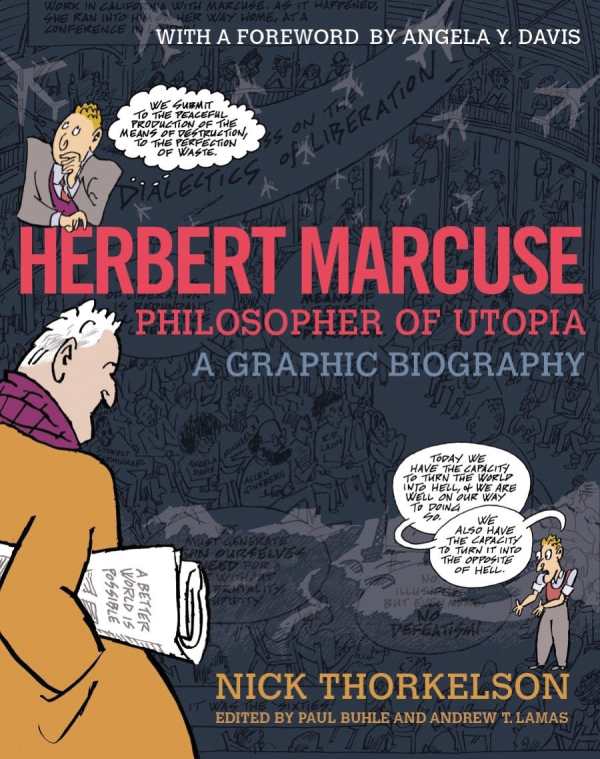Herbert Marcuse, Philosopher of Utopia
A Graphic Biography
Nick Thorkelson tackles the formidable task of distilling the life and work of a respected modern philosopher into a well-paced graphic biography in Herbert Marcuse, Philosopher of Utopia.
Born in Germany, Marcuse was a World War I draftee who became involved in the socialist movement. After the war, he attended Freiberg and embarked on what would become a career with one foot in the philosophical and theoretical world, and the other in the political world of reality and change.
Marcuse exchanged ideas with well-known philosophers like his professor Martin Heidegger, but he might be best known for the later stages of his life, when he became known in the media as “the guru of the New Left.” Thorkelson does an admirable job of taking sophisticated philosophical arguments and delivering them in a few panels, not to mention doing so in a way that minimizes the pace-slowing impact of “talking heads.” But this is dense material, and even dedicated readers might need to step away for a break after several chapters that probe the differences of rival philosophies.
Putting the sometimes complicated subject matter aside, Thorkelson demonstrates a unique combination of knowledge and skill in recounting Marcuse’s life in graphic form. Whether one agrees or disagrees with Marcuse, his philosophy is undoubtedly relevant to modern society, with its questioning of capitalism and its observations about the masses burying their instincts to push for change under layers of technological distractions. Herbert Marcuse, Philosopher of Utopia serves as an excellent summary of Marcuse’s ideas and his lasting influence.
Reviewed by
Peter Dabbene
Disclosure: This article is not an endorsement, but a review. The publisher of this book provided free copies of the book to have their book reviewed by a professional reviewer. No fee was paid by the publisher for this review. Foreword Reviews only recommends books that we love. Foreword Magazine, Inc. is disclosing this in accordance with the Federal Trade Commission’s 16 CFR, Part 255.

